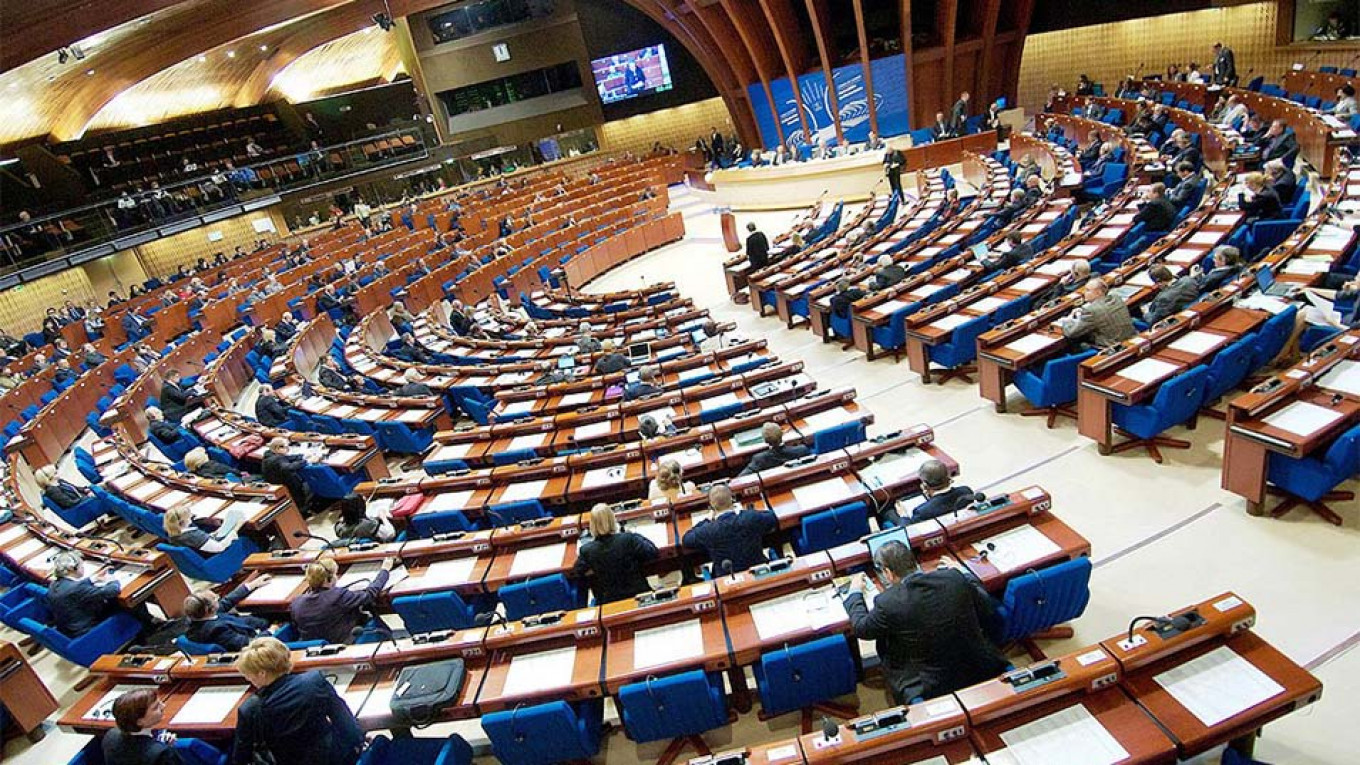
Europe’s top human rights body has voted to allow Russia to return as a member of its parliamentary assembly, dividing the 70-year-old watchdog tasked with monitoring civil liberties among its 47 member states.
Russia was suspended from the Council of Europe’s Parliamentary Assembly (PACE) in 2014 over Moscow’s behavior toward Ukraine, including the annexation of Crimea. Russia responded by halting annual payments to the Strasbourg, France-based human rights body in 2017, putting it at risk of being ejected this year after two years of nonpayment.
PACE members voted 118-62 (with 10 abstentions) to clear the path toward restoring Russia’s membership early Tuesday following eight hours of heated debate on Monday night.
“The members’ rights to vote, to speak and to be represented in the Assembly and its bodies shall not be suspended or withdrawn in the context of a challenge to or reconsideration of credentials,” the adopted PACE resolution said.
Shortly after the vote, Russia submitted its bid to join PACE’s weeklong summer session, where members will vote on a new secretary general and European Court of Human Rights (ECHR) judges. Russia has threatened to leave if it was blocked from participating in Wednesday’s vote for a new secretary general.
Ukraine had warned that the Council of Europe would “discredit” its “authority to mentor member states” if PACE votes to reinstate Russia.
Ukraine’s delegation walked out in protest following Tuesday’s vote, and the country has temporarily suspended its PACE membership, The Kyiv Post newspaper reported.
The Kremlin called the vote “a return to common sense,” the RBC news outlet quoted spokesman Dmitry Peskov as saying.
PACE deputies on Wednesday challenged the vote to clear Russia’s reinstatement, saying a special commission will be created to determine the Russian delegation’s powers, the state-run RIA Novosti news agency reported.
Last month, Russia avoided exclusion from the Council of Europe after Germany and France engineered a last-minute deal. The deal changed the rules for suspending member states’ voting rights, thus avoiding the need to explicitly back down on criticism of Russia’s annexation of Crimea.
Losing membership of the Council of Europe, which Russia joined in 1996, would deprive its citizens of the right to appeal to the European Court of Human Rights. The ECHR has passed judgments on more human rights violations by Russia than any other Council member except Turkey since 1959.
